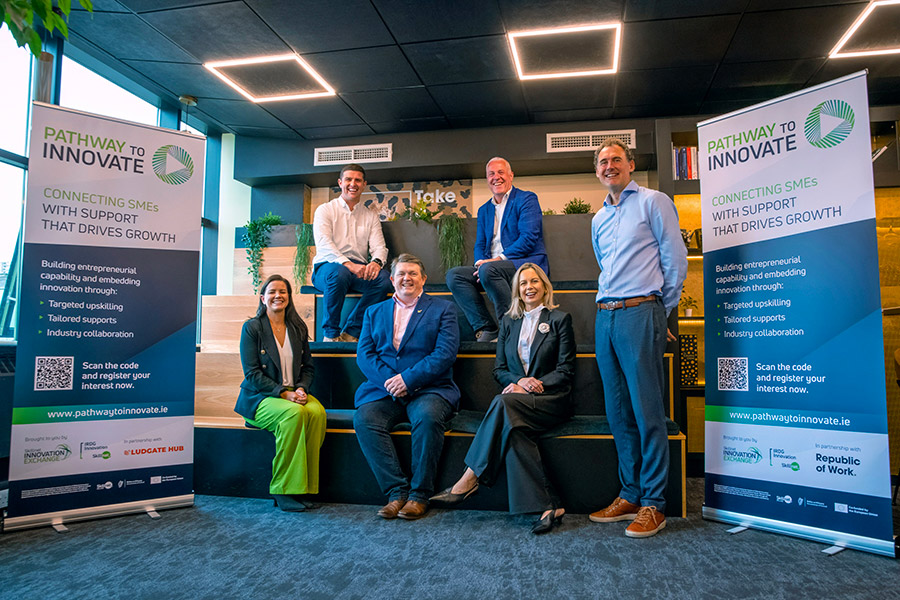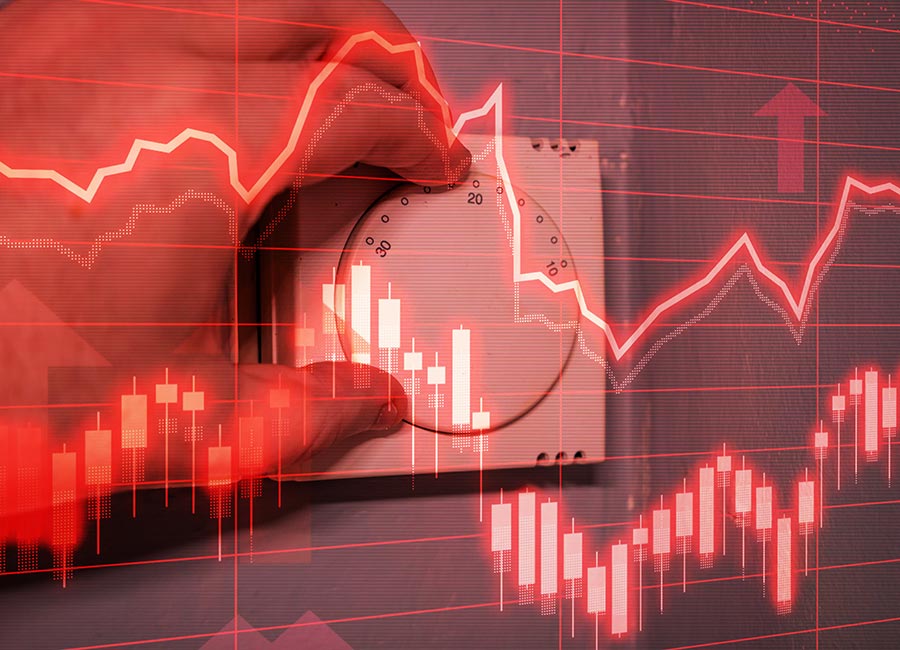Pat Cooney made a fortune by finding a way to literally bottle his entrepreneurial ambition. Along with his brother, Cooney bought a small Guinness bottler and wholesaler in Tipperary, called M&J Gleeson, in the early ‘70s. Cooney subsequently built the company up into a concern with turnover of €250m, eventually selling most of the concern to C&C in 2012.
Now the 68-year-old Drogheda businessman is anteing up to go again, this time building a distillery, brewhouse and visitor centre in the Boyne Valley, where he comes from. Family is the spur that keeps Cooney going and he is keen to build a business that he can pass on to future Cooney generations. “We all know the problems of family businesses – they generally don’t last,” says Cooney. “The challenge is to put in place the mechanism to give it the best chance of surviving.”
Pat Cooney’s business career began in accountancy, more out of necessity than choice. “It was the only profession you could get at the time without having to pay out a lot of money,” he recalls. Qualifying in 1968, Cooney went to London, where he studied economics and worked with Deloitte. After a few years, Cooney returned to Ireland, finding a job as a management consultant in Dublin.
Purely through happenstance, Cooney’s interest alighted on M&J Gleeson, which employed 12 people at the time in Borrisoleigh. “I always wanted to do something for myself, to be my own boss,” he states. “I didn’t know what business I wanted and there weren’t too many options available.”
Gleeson Group
Gleesons was a small-time bottler and distributor to the pub trade. Cooney, his wife Marie and his brother Nicky set about growing the business, expanding its product range and manufacturing capabilities. “I initially thought I’d be a serial entrepreneur, buying and selling businesses,” Cooney explains. “But I liked what I was doing and had a great time, so we didn’t sell it. Over the years, as the family came along, the idea grew that I wanted it to be a family business. From about 2000 on, everyone in the family had a part to play – my children never worked anywhere else.”
The Gleeson Group’s portfolio expanded to include a number of well-known brand names, among them Tipperary mineral water, Finches soft drinks, Merry’s cream liqueur and Devil’s Bit cider. “My daughter Sally-Anne managed the wine business and my son Peter managed the water cooler business. Another son, James, was studying to be an accountant and my third son, Patrick, worked with us in sales.”
By the time C&C swooped for Gleeson Group in 2012, the business employed nearly 740 people and comprised 27 sub-companies. “We employed 350 people in Borrisoleigh alone, which is a very small village. We also operated eleven distribution depots nationwide and ran six factories.”
In its final filing before being bought by C&C, for the year to June 2012, M&J Gleeson (Investments) Ltd booked a net profit of €2m on turnover of €247m. Year-end liabilities amounted to €110m, including €46m in bank debt. That was a lot of risk for a family firm and Cooney decided to exit for a €12.4m cash payment from C&C, plus the plc taking the €46m debt monkey off his back.
Cooney reasons that the C&C transaction was opportune, particularly since Gleesons was virtually entirely focused on the domestic market. “We know what happened with the recession. 2012 was a horrible year – Ireland looked like it was going down the tubes entirely. We decided to sell off the domestic-based parts of the business and keep the parts that had export potential.”
The Cooneys held on to the Merry’s liqueur brands, as well as the cider businesses. The former booked a profit of €676,000 in financial 2014 and had net worth of €7m, while the latter booked a profit of €188,000 and had net worth of €1.5m for the same period. The operating company for both is jointly owned by Pat and Marie Cooney.
Boann Venture
Those ventures have provided the platform for the family’s new Boann Distillery and Visitor Centre, incorporating a brewery too, representing a €20m investment that Cooney plans to have up and running by next year. The facility will include a whiskey distillery, craft brewery and taproom, a visitor centre with restaurant, whiskey bar, private event space and a gift shop.
According to Cooney, he had been looking for a suitable site in Navan before his interest turned to a vacant building in the Boyne Valley. “It used to be a showroom for new cars, one of those great glass buildings built during the Celtic Tiger. It was perfectly suited for what we wanted to do.”
The 50,000 sq ft facility, bought by Cooney in February 2014, is being doubled in size. From the get-go, Cooney’s focus is export-led. “The world market is a very big place now and that’s the key difference. Everything we are doing has export potential.”
In recent years, craft whiskey and beer ventures have been springing up by the dozen, though Pat Cooney doesn’t see that as a problem for his own nascent operation. “Craft beer is a movement, rather than an industry in the ordinary sense of the word. Everybody innovates in doing their own thing – every brewery is different.”
Brewing is already underway and whiskey distilling will be operational by the end of 2015. The visitor centre is scheduled to be opened by September 2016. The four main challenges identified by Cooney for his Boann venture are construction, finance, production and sales. “New building regulations are a nightmare and are adding a lot of extra cost to the exercise,” he states. The drinks industry veteran is more confident with production logistics. “It’s just about getting the right people in place,” he maintains.
On financing, Cooney contends that banks don’t understand the distilling business, and thus are reluctant to part with their cash. “This project is mostly funded by the Cooney family, with a small input from AIB and Enterprise Ireland,” says Cooney. We don’t have any other partners so we can take decisions that others wouldn’t be as free to take.”
Still, Cooney hopes to raise further funding through an initiative that will allow investors to purchase some of the first 500 barrels of whiskey made by Boann. “The fact that you’re Irish helps but doesn’t guarantee you much when you’re selling the products,” says Cooney. “Selling into the domestic market is straightforward. If you have a problem 20 miles down the road it’s okay. However, if that problem is in Australia, then it’s a big problem.”
Family Line
Long-term, Cooney’s mission is to build a business that he can pass down the family line. Four of his five children (Patrick, James, Peter and Sally-Anne) currently work in Cooney businesses, while the fifth, Celestine, is a London-based stylist who helps out with some of the family’s PR material.
“We organised a shareholders’ agreement and we’re now drawing up a family constitution, covering how the family is going to interact within the business. Without having clear operating principles in place, you have no chance with making a family business last. You can count on one hand the number of family businesses in Ireland that survive into the third generation.”
Talking shop is de rigueur in the Cooney household for family get togethers. “Most discussions we have are about business of one sort or other. That’s good though, because it shows that everyone is enthusiastic and fully committed to the success of this venture.”
Cooney isn’t keen on Capital Acquisitions Tax, which he sees as a hindrance to family businesses and unfair to boot. “I regard CAT as double taxation. The money that’s gone into this business has all been tax-paid before, yet if I leave it to my children they have to pay tax again,” he says.
“The tax regime in Ireland incentivises people to build their businesses up to a certain level and then sell. They’re bought by multinationals and they become operating outposts of an international company. All the enterprise that built them up from the outset is lost.”

Back (from left): Peter, Pat, Sally-Anne, Patrick. Front (from left): Celestine, James and Marie Cooney











